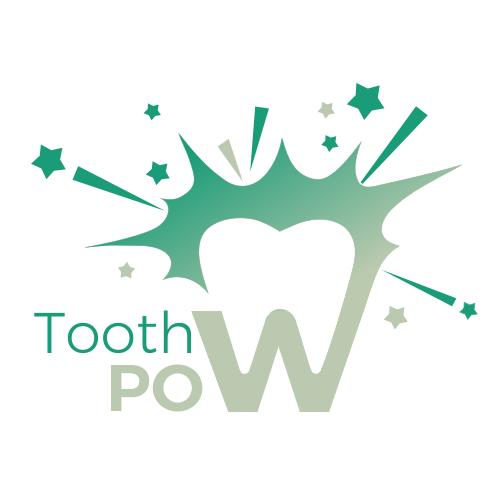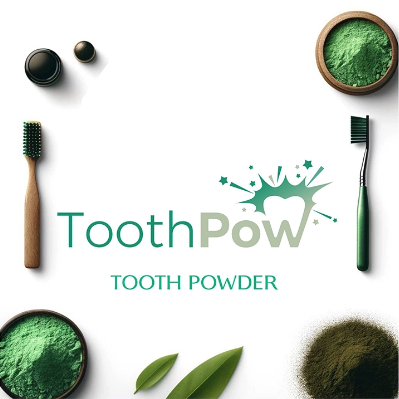The Debate on Using Mouthwash Daily
Mouthwash is more than just a breath freshener; it is an integral component of a comprehensive oral hygiene regimen. Its primary function extends beyond just masking bad breath; it involves combating harmful bacteria, supporting gum health, and enhancing the mechanical cleaning effects of brushing and flossing. This detailed exploration will delve into what mouthwash is, how it functions, and the nuanced considerations of its daily use. Understanding these facets can help you make informed decisions about incorporating mouthwash into your daily oral care, optimizing your oral health while tailoring practices to meet individual needs.

What is Mouthwash?
Mouthwash, often referred to as an oral rinse, is a liquid product designed to enhance oral hygiene. It's not just a solution for freshening breath but serves multiple purposes in maintaining a healthy mouth. Primarily used as an adjunct to brushing and flossing, mouthwash can contain a variety of ingredients depending on its intended function—ranging from antibacterial agents to fluoride, and natural oils to desensitizing agents.
Mouthwashes are available in various formulations and flavors, catering to different preferences and oral health requirements. The diversity in mouthwash products reflects the breadth of concerns they can address, including reducing dental plaque, fighting gum disease, restoring enamel, or simply maintaining fresh breath throughout the day.
Types of Mouthwash and Their Functions
Antiseptic Mouthwashes: These contain active ingredients like chlorhexidine, cetylpyridinium chloride, or essential oils that help reduce bacterial load in the mouth, combat plaque accumulation, and treat conditions like gingivitis.
Fluoride Rinses: Aimed primarily at preventing tooth decay by remineralizing enamel and protecting against demineralization, fluoride mouthwashes are a popular choice for enhancing dental health.
Cosmetic Mouthwashes: These primarily provide temporary solutions to bad breath and may have limited antibacterial properties. They are perfect for a quick refresh but do not necessarily contribute to long-term oral health improvements.
Natural/Organic Mouthwashes: Often free from alcohol and synthetic ingredients, these mouthwashes utilize natural components like herbal extracts, essential oils, and mineral salts to provide a gentler approach to oral hygiene.
Specialized Mouthwashes: Some formulations target specific issues such as dry mouth, oral thrush, or tooth sensitivity, incorporating ingredients specifically for these conditions.
By understanding the various types of mouthwashes available and their specific purposes, you can better choose a product that aligns with your oral health needs and preferences. Next, we'll explore how mouthwash works to improve oral hygiene and the underlying mechanisms that make it effective.
How Does Mouthwash Work?
Mouthwash enhances oral health through various mechanisms, depending on its specific ingredients and formulation. Here’s how different types of mouthwash contribute to dental hygiene:
Antiseptic and Antibacterial Mouthwashes
These mouthwashes often contain natural ingredients such as essential oils (e.g., eucalyptus, peppermint, tea tree) which possess antimicrobial properties. They work by:
Killing Bacteria: Natural oils reduce harmful bacteria in the mouth that can cause plaque and gum disease.
Reducing Plaque and Gingivitis: By controlling the bacterial population, these mouthwashes help prevent plaque buildup and the development of gingivitis.
Freshening Breath: These ingredients also help to naturally freshen breath by reducing odor-causing bacteria.
Natural and Herbal Mouthwashes
Formulated with components like aloe vera, chamomile, and various herbal extracts, these mouthwashes offer:
Natural Antimicrobial Effects: Many herbs and natural oils have antibacterial properties that help maintain oral health by reducing plaque and freshening breath.
Soothing Gums: Ingredients such as aloe vera can soothe inflamed or irritated gums, promoting healthier gums without the use of harsh chemicals.
Desensitizing Mouthwashes
For those with sensitive teeth, mouthwashes containing natural minerals like nano-hydroxyapatite are effective in:
Blocking Nerve Signals: These ingredients reduce teeth sensitivity to hot, cold, or sweet stimuli by blocking pathways that transmit pain.
Filling Microscopic Tooth Surface Cracks: They help fill in the microscopic pits and fissures on the enamel surface, reducing sensitivity.
Cosmetic Mouthwashes
These are primarily designed for breath freshness and may include:
Deodorizing Agents: Natural ingredients that provide a temporary freshening of the breath without long-term antibacterial effects.
Choosing the Right Mouthwash
When selecting a mouthwash, consider your specific dental needs and strive to avoid products containing fluoride and other synthetic chemicals. For instance, if you have sensitive teeth, look for a mouthwash with natural desensitizing properties. If gum health is your concern, choose a mouthwash with effective natural antibacterial agents. Consulting with a holistic dentist can also provide insights into the best natural mouthwash to complement your dental care regimen effectively.
The Impact of Mouthwash in Oral Care
The long-term impact of incorporating mouthwash into your daily oral care routine can be significant. Research suggests that using mouthwash at the right times and in the right amounts can provide relief from certain oral conditions and address specific oral health needs. Additionally, incorporating this habit into your daily life, along with a consistent oral care routine, can significantly contribute to the health and well-being of your teeth and gums. It is important to note that the timing and amount of mouthwash usage can vary depending on individual oral care goals. Overall, the long-term impact of using mouthwash as part of a comprehensive oral care routine can be beneficial for maintaining overall oral wellness.
Enhanced Oral Hygiene
Reduces Harmful Bacteria: Natural antiseptic components in mouthwashes help reduce the levels of harmful bacteria in the mouth, thereby decreasing the risk of plaque buildup and gum disease.
Supports Gum Health: Ingredients like aloe vera and essential oils have anti-inflammatory properties that can help soothe and protect gums from irritation and inflammation.
Freshening Breath
Immediate Freshness: Mouthwash can instantly freshen breath by neutralizing odors and providing a clean, fresh feeling. Essential oils like peppermint and spearmint are especially effective for long-lasting freshness.
Supporting Enamel Health
Natural Remineralization: Mouthwashes that include natural minerals like nano-hydroxyapatite can help remineralize and strengthen tooth enamel, aiding in the prevention of decay without the need for fluoride.
Soothing Oral Tissues
Calms Irritation: Herbal ingredients can provide soothing relief for irritated or inflamed oral tissues, making mouthwash a beneficial addition for those with sensitive mouths or recent dental procedures.
Convenience and Accessibility
Easy to Use: Mouthwash offers a quick and easy way to support oral health, especially when brushing and flossing might not be possible, such as after meals or on the go.
Complement to Brushing and Flossing
Reaches Difficult Areas: Mouthwash can access places that brushing and flossing might miss, helping to clean the entire oral cavity more effectively.
By choosing a natural and alcohol-free mouthwash, you can enjoy these benefits without the drawbacks associated with harsh chemicals. This approach ensures that you're not only maintaining oral health but also respecting the natural balance of your mouth's ecosystem.

How to Use Mouthwash Properly for Maximum Benefits
Using mouthwash correctly is essential to reap its full benefits. Here’s a detailed guide on how to integrate mouthwash effectively into your daily oral hygiene routine:
Step-by-Step Guide to Using Mouthwash
Choose the Right Mouthwash: Opt for a natural, alcohol-free mouthwash that aligns with your specific oral health needs. Look for ingredients that promote gum health, enamel strengthening, and breath freshening without harsh chemicals.
Correct Timing: The best time to use mouthwash is after brushing and flossing, to ensure that any loosened particles are washed away and your mouth is left feeling fresh.
Proper Amount: Use the recommended amount of mouthwash, typically around 20 ml, which is about four teaspoons. Most mouthwash bottles come with a cap that can be used to measure the correct dose.
Swish Thoroughly: Pour the mouthwash into your mouth and swish it around vigorously. Move the liquid throughout your mouth and between your teeth to cover all areas. This should be done for about 30 seconds to allow the mouthwash to reach its full effect.
Gargle for Extra Cleanliness: After swishing, try gargling for a few seconds to ensure the mouthwash reaches the back of your throat and between your teeth, areas where bacteria are likely to be present.
Spit, Don’t Swallow: Once you have finished swishing and gargling, spit out the mouthwash. Do not swallow it as even natural ingredients are not intended for ingestion and can upset your stomach.
Wait Before Rinsing: After using mouthwash, wait at least 30 minutes before eating, drinking, or rinsing your mouth with water. This allows the active ingredients in the mouthwash to work effectively.
Additional Tips
Daily Use: For optimal results, incorporate mouthwashing into your routine twice a day, usually morning and night, to maintain oral hygiene and fresh breath throughout the day.
Monitor Your Oral Health: Pay attention to how your mouth reacts to the mouthwash. If you experience any irritation or adverse effects, consult your dentist and consider switching products.
Consult Your Dentist: If you’re unsure about which mouthwash to use, or how often to use it, consulting with your dentist can provide personalized advice based on your oral health status and needs.
Using mouthwash correctly enhances its effectiveness and contributes significantly to maintaining a healthy, fresh mouth. By following these guidelines, you can ensure that your mouthwash regimen supports your overall dental care routine effectively.

Should You Use Mouthwash Every Day?
Using mouthwash daily is a common practice for many, but it’s important to understand the implications and tailor your oral hygiene routine to your specific needs. Here’s a closer look at whether you should incorporate mouthwash into your daily routine:
Daily Use of Mouthwash: Pros and Cons
Pros:
Enhanced Oral Hygiene: Regular use of mouthwash can help eliminate bacteria, reduce plaque buildup, and maintain a clean oral environment, complementing brushing and flossing.
Fresh Breath: Mouthwash can quickly freshen breath, making it a valuable addition to your morning and evening routines, especially for managing breath after meals or snacks.
Preventive Care: Certain natural mouthwashes contain ingredients that help prevent oral diseases by strengthening enamel and reducing gum inflammation without the risks associated with fluoride.
Cons:
Overuse Risks: Using mouthwash excessively or choosing products with harsh ingredients can disrupt the natural balance of bacteria in your mouth, potentially leading to oral health issues such as dry mouth or altered taste sensation.
Masking Underlying Problems: While mouthwash can freshen breath, it may also mask the symptoms of underlying dental issues that require professional attention, such as persistent bad breath due to dental decay or gum disease.
Guidelines for Daily Use
Choose Wisely: Opt for alcohol-free, natural mouthwashes that contain ingredients like essential oils, xylitol, or herbal extracts which promote oral health without adverse effects.
Follow Instructions: Use mouthwash as directed on the product label or by your dentist, typically no more than twice a day to complement brushing and flossing.
Consulting with a Dental Professional
It’s advisable to consult with your dentist to determine the best approach for using mouthwash as part of your daily routine. Your dentist can recommend products that align with your health needs and dental goals, ensuring that your use of mouthwash supports rather than detracts from your overall oral health.
By understanding the benefits and potential drawbacks of daily mouthwash use, you can make an informed decision that enhances your oral hygiene routine while safeguarding your dental health.
Conclusion on Daily Use
While there are potential risks associated with the daily use of mouthwash, these can largely be mitigated by choosing the right products and using them correctly. Natural, alcohol-free mouthwashes can be a safe and effective addition to daily oral hygiene routines, provided they are used as part of a comprehensive approach to oral health that includes regular brushing and flossing.

Conclusion
Using mouthwash daily can be a beneficial addition to your oral hygiene routine, as explained by dentists. It can help in reducing plaque, preventing gum disease, and freshening breath. However, it's important to use it as directed and not as a substitute for brushing and flossing.
For more tips on maintaining good oral health and finding the right mouthwash for your needs, visit. ToothPow.com Stay informed and take proactive steps to care for your oral hygiene. Your smile will thank you!

